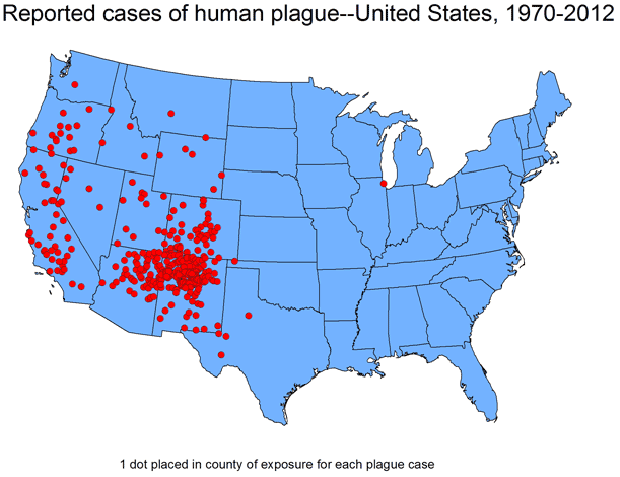New plague death confirmed in Colorado
For the second time this summer, someone has died of plague in Colorado. Health officials say the latest victim, an adult whose name was not released, may have contracted the disease after being bitten by fleas carried on an infected rodent.
The Pueblo City-County Health Department released a statement confirming the county's first case of plague since 2004 and expressing condolences to the victim's family. Officials also sought to raise awareness about how the plague is spread.
"This highlights the importance to protect yourself and your pets from the exposure of fleas that carry plague," Sylvia Proud, public health director of the Pueblo City-County Health Department, said in the statement.
A dead prairie dog found on the border of Pueblo was confirmed to be have the plague bacterium. Officials say that means there could be more rodents in the area carrying plague-infected fleas. An outbreak of plague often results in noticeable animal die-off. The department is investigating the case with the Colorado Department of Public Health and Environment.
In June, a 16-year-old boy died in Larimer County, Colorado, in that county's first confirmed plague case since 1999.
Modern cases of plague -- the disease known as the Black Death in medieval times -- are most often found in parts of Africa and Asia and, occasionally, South America and the Western U.S., according to the CDC.
"Now, it's very rare, especially in the U.S. There are only about 7 to 10 cases a year, but it still exists," medical contributor Dr. Holly Phillips told "CBS This Morning" in June, after a previous case proved deadly. "Think of rodents in very rural states -- western states, southwest, ranches, farms."
The bacterium Yersinia pestis, the source of plague, is transmitted between animals and to humans from the bites of infected fleas. Because the rodents carrying the fleas often die from the infection, the fleas seek new hosts, raising the risk to human populations.
Symptoms of plague infection can look similar to the flu at first: fever, chills, weakness, and swollen and painful lymph nodes and sometimes pneumonia. Antibiotics can treat the disease if it's caught early, but untreated cases can cause serious illness or death.
To protect against the disease, Health officials caution against touching wild rabbits, rats or other rodents -- dead or alive -- and recommend using insect repellent and flea control for pets.
